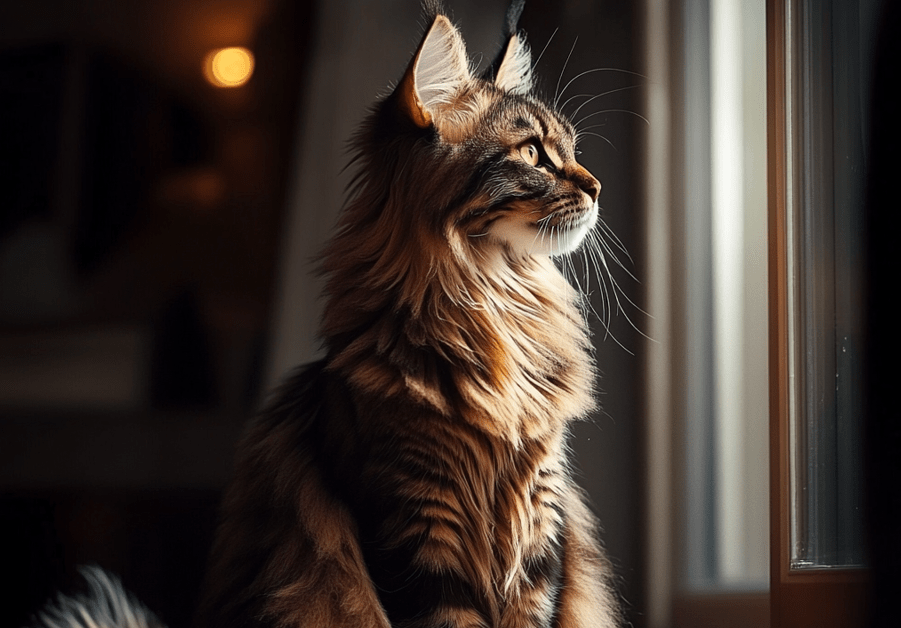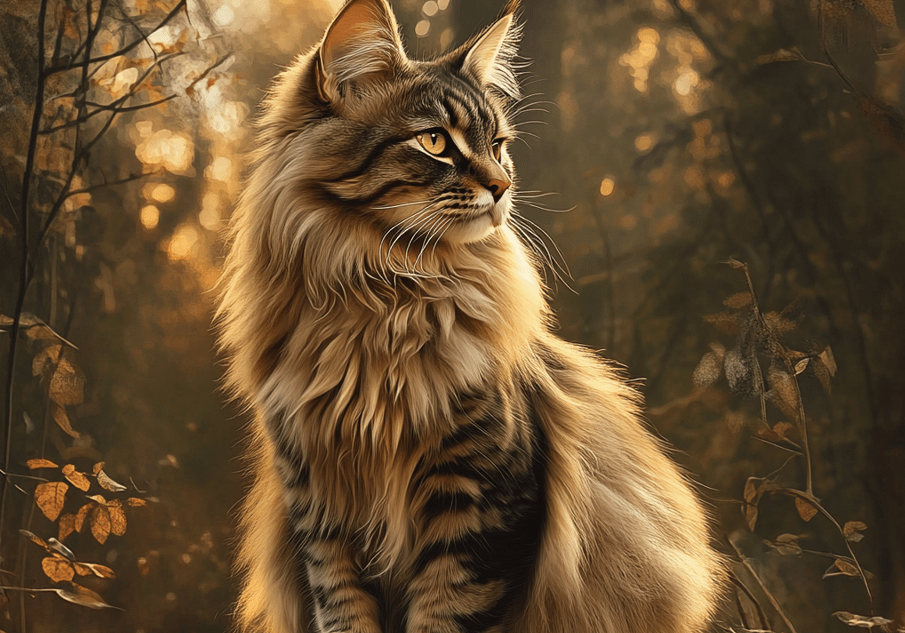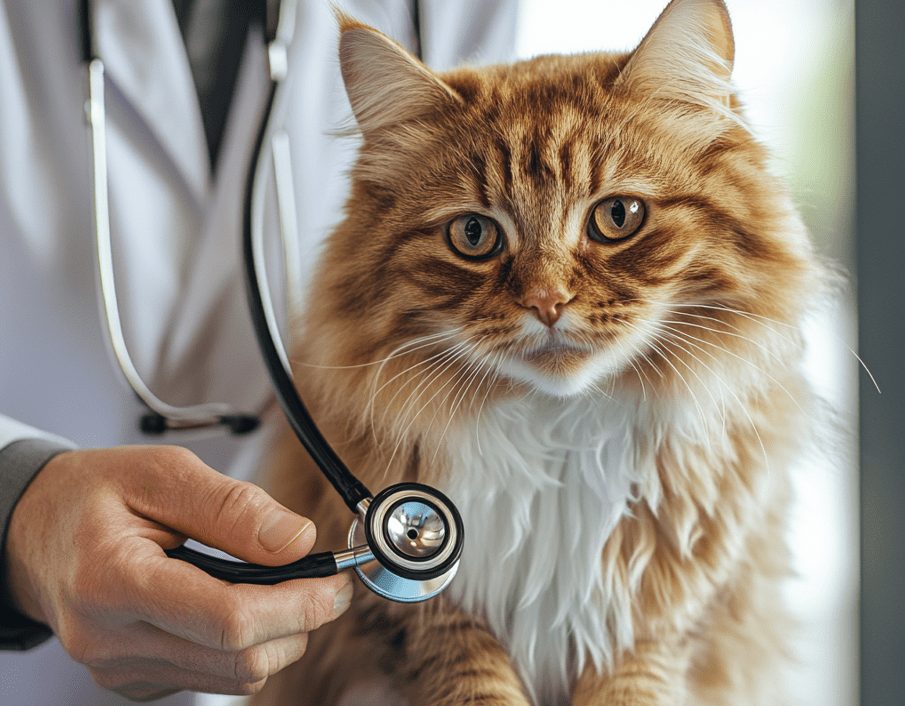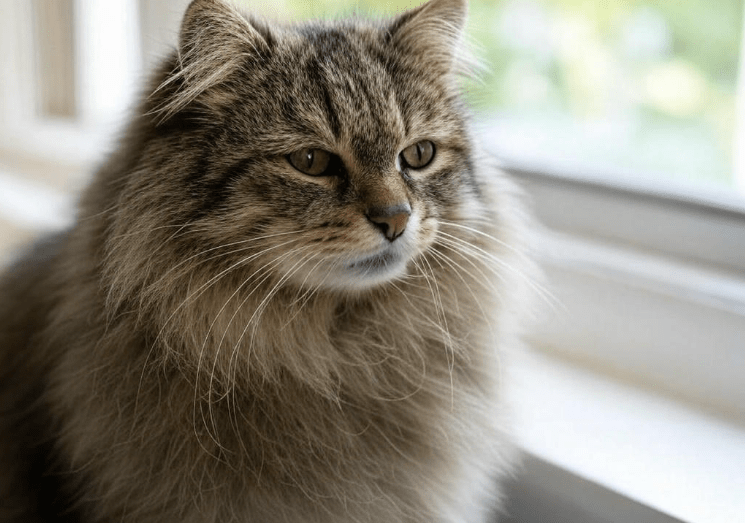
Maine Coon waking at night is a common frustration for owners of this affectionate, energetic breed. Known for their playful, dog-like personalities and large size, Maine Coons are beloved companions, but their nighttime antics—meowing, pouncing, or knocking things over—can disrupt your sleep. If your Maine Coon is keeping you awake, you’re not alone. This comprehensive guide explores the reasons behind nighttime disturbances and offers proven solutions to help you and your cat enjoy restful nights, ensuring a happier, healthier bond.
Understanding Why Maine Coons Wake You Up at Night
Maine Coons are naturally active and intelligent, with instincts that can lead to nighttime activity. Their crepuscular nature—being most active at dawn and dusk—means they may be wired to roam when you’re trying to sleep. Understanding the root causes of Maine Coon waking at night is key to finding effective fixes. This article covers everything from behavioral triggers to health issues, providing actionable strategies to restore peace to your nights.
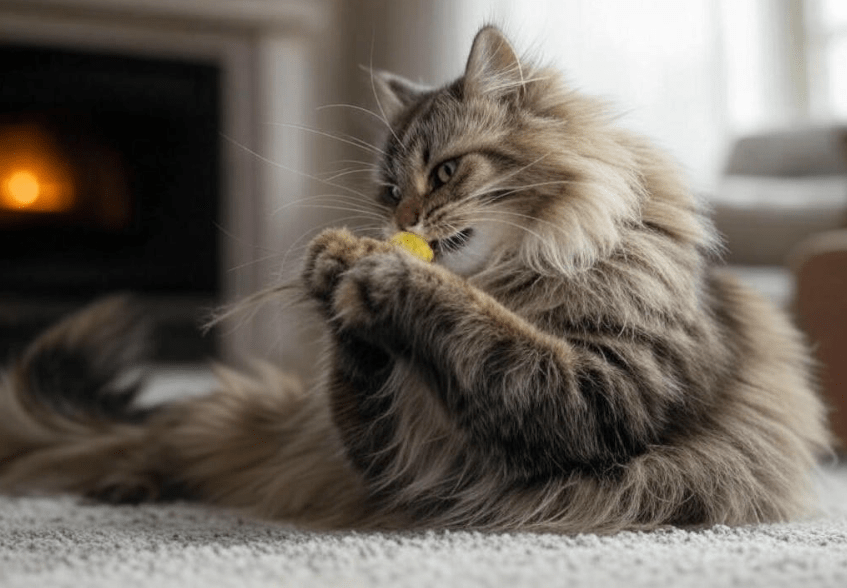
Common Reasons for Nighttime Disturbances
Maine Coons may wake you up for a variety of reasons, ranging from natural instincts to environmental factors. Here are the most common culprits:
Hunger or Feeding Schedule: Maine Coons have hearty appetites, and an empty stomach or inconsistent feeding times can prompt nighttime demands for food.
Boredom or Lack of Stimulation: These intelligent cats need mental and physical activity. Without enough daytime engagement, they may become restless at night.
Attention-Seeking Behavior: Maine Coons are social and may wake you for play or affection, especially if they feel neglected during the day.
Stress or Anxiety: Changes in the household, like new pets or loud noises, can cause nighttime restlessness or vocalization.
Health Issues: Pain, discomfort, or medical conditions like hyperthyroidism can lead to increased activity or vocalization at night.
Litter Box Problems: A dirty or inaccessible litter box may cause your cat to wake you to signal their discomfort.
Natural Instincts: As crepuscular animals, Maine Coons are wired to be active during twilight hours, which can spill into your sleep time.
Aging or Cognitive Changes: Senior Maine Coons may experience cognitive dysfunction, leading to confusion or nighttime vocalization.
Recognizing these triggers will help you tailor solutions to your Maine Coon’s specific needs.
Signs Your Maine Coon’s Nighttime Behavior Needs Attention
Not every nighttime wake-up call is cause for concern, but persistent or unusual behavior may indicate an issue. Watch for these signs:
Frequent Vocalization: Excessive meowing, yowling, or chirping, especially if it’s new or intense.
Destructive Behavior: Knocking over objects, scratching furniture, or pacing restlessly.
Changes in Routine: Sudden shifts in sleep patterns, appetite, or litter box habits.
Physical Symptoms: Weight loss, excessive thirst, or signs of discomfort when touched.
Daytime Lethargy: If your cat sleeps all day but is hyperactive at night, they may need more daytime stimulation.
If these signs persist, it’s time to investigate and address the underlying cause.
Step-by-Step Fixes for Maine Coon Waking at Night
Managing your Maine Coon’s nighttime disturbances requires a combination of environmental adjustments, behavioral training, and, when necessary, veterinary care. Below are proven strategies to help your cat settle down at night.
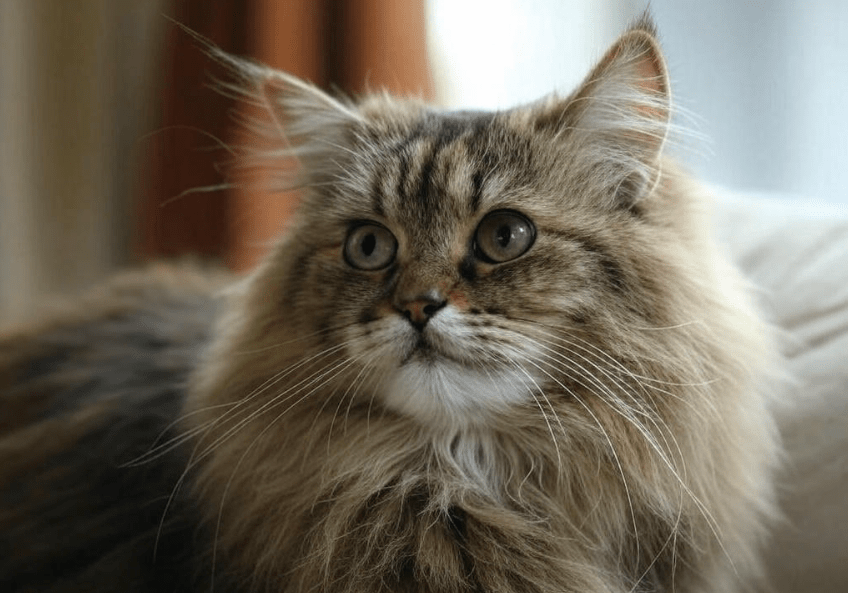
1. Adjust Feeding Schedules
Hunger is a common reason Maine Coons wake their owners. Adjusting feeding times can align their energy levels with your sleep schedule.
Feed a Late Meal: Offer a substantial meal close to bedtime, ideally 1–2 hours before you sleep. This satisfies their hunger and mimics their natural hunting cycle, encouraging rest afterward.
Use High-Protein Food: Choose high-quality, protein-rich cat food to keep your Maine Coon full longer. Wet food can also promote hydration and satiety.
Consider Automatic Feeders: For cats that wake you for early morning meals, an automatic feeder set for 4–5 a.m. can prevent disturbances while maintaining consistency.
Avoid Free-Feeding: Leaving food out all day can disrupt their eating rhythm, leading to nighttime hunger. Stick to scheduled meals.
Pro Tip: Transition to new feeding schedules gradually over 5–7 days to avoid digestive upset.
2. Increase Daytime Stimulation
Maine Coons are intelligent and energetic, requiring ample mental and physical activity to prevent nighttime restlessness.
Engage in Playtime: Dedicate 20–30 minutes daily to interactive play using toys like feather wands, laser pointers, or balls. Mimic hunting by letting your cat “catch” the toy to satisfy their instincts.
Provide Enrichment: Offer puzzle feeders, treat-dispensing toys, or rotating toys to keep your cat mentally engaged. Maine Coons love climbing, so invest in a tall cat tree or shelves.
Schedule Evening Play: A vigorous play session 1–2 hours before bed can tire your cat out, encouraging them to sleep through the night.
Rotate Toys: Introduce new toys weekly to prevent boredom and maintain interest.
Pro Tip: End play sessions with a calm activity, like gentle petting, to help your cat wind down.
3. Create a Nighttime Routine
Establishing a consistent nighttime routine signals to your Maine Coon that it’s time to rest.
Set a Schedule: Feed, play, and groom at the same time each evening to create predictability.
Dim the Lights: Lower lighting in the evening to mimic dusk, encouraging your cat to settle down.
Provide a Cozy Sleep Space: Offer a comfortable bed or blanket in a quiet area where your Maine Coon feels safe. Heated beds are especially appealing in colder months.
Limit Nighttime Access: If your cat wakes you by jumping on the bed, consider keeping your bedroom door closed or using a pet gate, but ensure they have access to food, water, and a litter box.
4. Address Litter Box Issues
Litter box problems can prompt nighttime disturbances, as Maine Coons are particular about hygiene.
Keep It Clean: Scoop the litter box daily and fully clean it weekly to prevent avoidance.
Use a Large Box: Maine Coons need oversized litter boxes due to their size. Ensure the box is at least 1.5 times their body length.
Choose the Right Litter: Stick to unscented, clumping litter, as scented or coarse litters may deter use.
Ensure Accessibility: Place the box in a quiet, easily accessible location, away from food and water. In multi-story homes, provide a box on each floor.
Pro Tip: If your cat avoids the litter box at night, check for medical issues like urinary tract infections, which can cause discomfort.
5. Reduce Stress and Anxiety
Stress or anxiety can lead to nighttime vocalization or restlessness, especially in sensitive Maine Coons.
Identify Triggers: Look for recent changes, like new pets, loud noises, or rearranged furniture, that may be causing stress.
Use Pheromone Diffusers: Products like Feliway emit calming pheromones, reducing anxiety and promoting relaxation.
Create Safe Spaces: Provide hiding spots or elevated perches where your cat can retreat if stressed.
Spend Quality Time: Daily interaction through play or cuddling strengthens your bond and reduces attention-seeking behavior at night.
Pro Tip: For severe anxiety, consult your vet about calming supplements or medications.
6. Rule Out Health Issues
Medical conditions can cause Maine Coons to wake at night, especially in older cats. A veterinary visit is essential if behavior changes are sudden or persistent.
Check for Pain: Conditions like arthritis, dental disease, or hip dysplasia (common in Maine Coons) can cause discomfort, leading to restlessness or vocalization.
Screen for Hyperthyroidism: This condition, prevalent in older cats, can cause increased appetite, vocalization, and nighttime activity. Blood tests can confirm it.
Evaluate Cognitive Function: Senior Maine Coons may develop feline cognitive dysfunction, leading to confusion or nighttime yowling. Discuss treatments with your vet.
Test for Infections: Urinary tract infections or parasites can cause discomfort, prompting nighttime disturbances.
Pro Tip: Keep a journal of your cat’s symptoms, including when they wake you, to share with your vet for a more accurate diagnosis.
7. Train Your Maine Coon to Sleep at Night
Behavioral training can help redirect your Maine Coon’s nighttime energy.
Ignore Attention-Seeking: If your cat wakes you for attention, avoid responding with petting or feeding, as this reinforces the behavior. Wait until they’re quiet before interacting.
Reward Daytime Activity: Praise or treat your cat for playing or resting during the day to encourage daytime wakefulness.
Use Positive Reinforcement: If your cat sleeps through the night, reward them with a treat or affection in the morning.
Pro Tip: Consistency is key—mixed signals can confuse your cat and prolong the behavior.
Preventive Tips to Keep Your Maine Coon Sleeping at Night
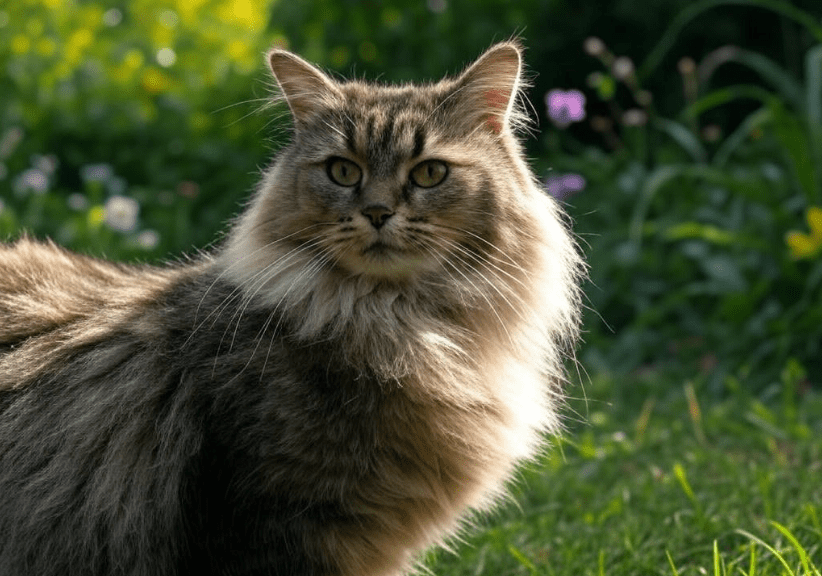
Preventing nighttime disturbances starts with proactive care and a cat-friendly environment.
Regular Vet Checkups: Schedule annual or biannual exams to catch health issues early, especially for senior Maine Coons.
Consistent Routine: Maintain a predictable schedule for feeding, play, and sleep to stabilize your cat’s internal clock.
Enriching Environment: Provide ample toys, scratching posts, and climbing opportunities to keep your cat engaged during the day.
Monitor Behavior Changes: Watch for shifts in appetite, litter box habits, or energy levels, as these may indicate underlying issues.
Common Mistakes to Avoid
When addressing Maine Coon waking at night, steer clear of these pitfalls:
Reinforcing Bad Behavior: Feeding or petting your cat when they wake you encourages the habit.
Punishing Your Cat: Yelling or scolding can increase stress and worsen nighttime activity.
Ignoring Health Issues: Medical conditions often underlie sudden behavior changes and require prompt attention.
Inconsistent Routines: Frequent changes to feeding or playtimes can disrupt your cat’s sleep cycle.
When to Seek Veterinary Attention
Some nighttime behaviors signal urgent health issues that require immediate care:
Persistent Vocalization with Physical Symptoms: Weight loss, excessive thirst, or lethargy may indicate hyperthyroidism or diabetes.
Refusal to Eat or Drink: Can lead to serious complications within 24–48 hours.
Signs of Pain: Limping, reluctance to jump, or aggression when touched warrant urgent evaluation.
Sudden Behavioral Shifts: Extreme lethargy, confusion, or seizures require immediate veterinary attention.
Conclusion
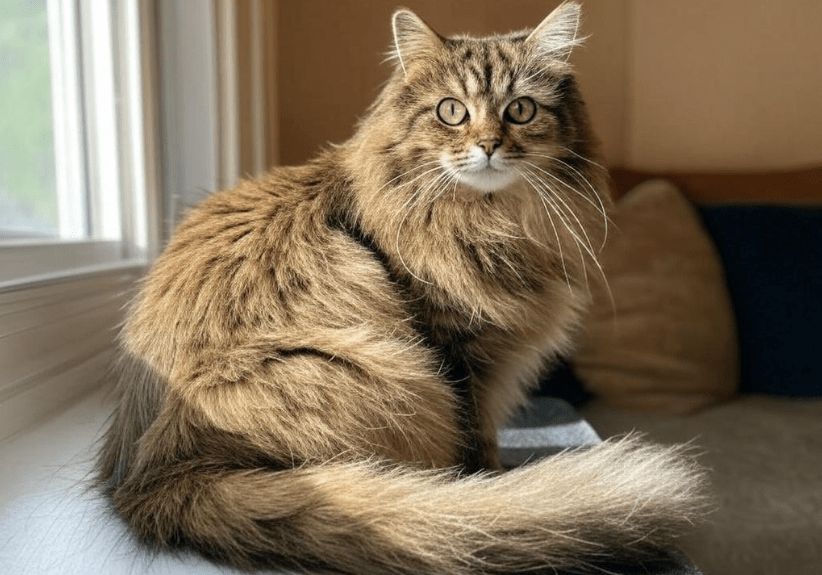
Maine Coon waking at night can disrupt your sleep, but with the right strategies, you can address the root causes and restore restful nights for both you and your cat. By adjusting feeding schedules, increasing daytime stimulation, creating a calming environment, and ruling out health issues, you’ll help your Maine Coon settle into a healthy sleep routine. Persistence and consistency are key to success. If nighttime disturbances continue, consult your veterinarian or a feline behaviorist to ensure your Maine Coon’s well-being and your peace of mind.

